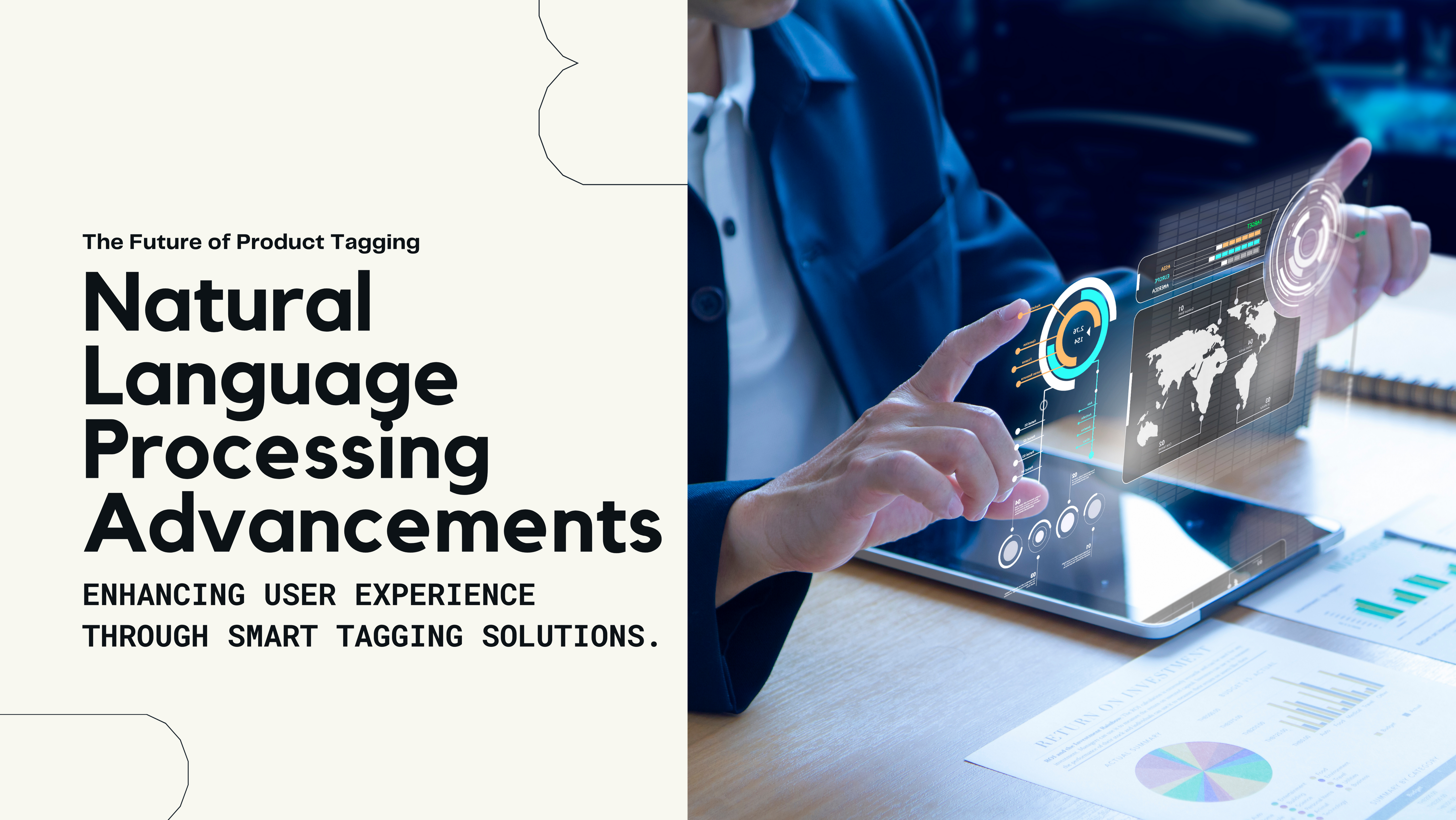Navigating the future of product tagging with Natural Language Processing (NLP) is like embarking on a journey into the heart of e-commerce innovation. NLP acts as a vital bridge, connecting businesses with their customers' language through reviews, descriptions, and social media interactions, unlocking invaluable insights along the way.
In the vast landscape of e-commerce, NLP serves as a powerful translator, not just decoding words but deciphering customer sentiments and preferences. This understanding goes beyond mere data analysis; it shapes a personalized shopping experience tailored to individual tastes, driving customer engagement and loyalty.
The significance of NLP extends far beyond its current impact. The global NLP market's rapid growth, from $20.8 billion in 2021 to an estimated $161.81 billion by 2029, signifies its pervasive influence across industries. As NLP continues to evolve and expand, its role in product tagging within e-commerce becomes increasingly pivotal, reshaping how businesses navigate and optimize their operations.
Product Tagging
Product tagging is a critical component of e-commerce, shaping how products are categorized, searched for, and ultimately discovered by consumers. This process involves assigning descriptive tags or labels to products based on their attributes, features, and characteristics. Effective product tagging is essential for enhancing the discoverability of items on online platforms, improving search accuracy, and facilitating personalized recommendations for users.
In the dynamic landscape of online retail, product tagging serves as a strategic tool for businesses to organize their inventory, streamline the shopping experience, and optimize their marketing efforts. By leveraging advanced technologies like Natural Language Processing (NLP) and machine learning algorithms, companies can automate and refine their product tagging processes, ensuring accuracy and relevance in metadata generation.
Furthermore, product tagging extends beyond basic categorization; it enables businesses to implement dynamic pricing strategies, target specific customer segments, and track product performance metrics. As e-commerce continues to evolve, the role of product tagging becomes increasingly integral to driving sales, enhancing customer satisfaction, and staying competitive in the digital marketplace.
Boost Your E-commerce Success With Clasifai's Cutting-Edge Product Tagging Solutions!
Future of Product Tagging
The future of product tagging is poised for significant advancements driven by innovative technologies like Natural Language Processing (NLP) and Artificial Intelligence (AI). These technologies will revolutionize how products are categorized, described, and personalized for individual consumers. With NLP, businesses can expect more accurate and context-aware tagging, leading to enhanced search capabilities, improved product recommendations, and a more tailored shopping experience.
Additionally, AI-powered product tagging will enable automated tag generation based on product attributes, customer feedback, and market trends. This proactive approach will streamline the tagging process, reduce manual intervention, and ensure consistency and relevance across product catalogs. As e-commerce continues to evolve, the future of product tagging holds promise for greater efficiency, better customer engagement, and increased competitiveness in the online marketplace.
Role of Natural Language Processing in Shaping Tomorrow's E-commerce
In the rapidly evolving landscape of e-commerce, the future of product tagging is undergoing a transformative shift, propelled by the integration of Natural Language Processing (NLP) technologies. NLP, a branch of artificial intelligence focused on understanding and processing human language, is revolutionizing how products are categorized, labeled, and presented to consumers. This innovative approach not only streamlines the tagging process but also enhances the overall customer experience, leading to increased engagement and sales.
With NLP, businesses can expect a paradigm shift in product tagging methodologies. Gone are the days of manual keyword-based tagging; NLP-powered systems can analyze vast amounts of textual data, including product descriptions, customer reviews, and social media interactions, to extract valuable insights and generate accurate tags automatically. This sophisticated approach not only ensures consistency and relevancy in product categorization but also enables personalized recommendations and advanced search functionalities, catering to the unique preferences of individual shoppers. As the adoption of NLP continues to grow, the future of product tagging is poised for unprecedented efficiency, accuracy, and customer-centricity in the e-commerce ecosystem.
FAQ
Q 1: How does Natural Language Processing (NLP) improve product tagging in e-commerce?
Answer: NLP enhances product tagging by analyzing customer language from various sources like reviews, descriptions, and social media. It decodes this data to understand customer sentiments and preferences, enabling businesses to create more accurate and personalized product tags.
Q 2: What are the benefits of using NLP for product tagging in e-commerce?
Answer: Using NLP for product tagging offers several benefits, including improved accuracy in tag generation, enhanced customer experience through personalized recommendations, streamlined tagging processes, and the ability to analyze and respond to changing market trends more effectively.
Q 3: How does NLP contribute to the future of product tagging?
Answer: NLP is instrumental in shaping the future of product tagging by providing insights into customer behavior, helping businesses stay competitive in the market. It allows for more sophisticated tagging strategies, such as sentiment-based tagging and context-aware tagging, leading to better search results and increased customer satisfaction.
Q 4: What advancements can we expect in product tagging with NLP in the coming years?
Answer: In the coming years, advancements in NLP will lead to even more accurate and efficient product tagging. We can anticipate developments in sentiment analysis, semantic understanding, and natural language generation, all of which will further optimize product tagging processes and improve the overall e-commerce experience.

